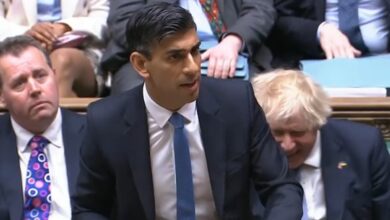Cost of living: How can the UK government help reduce energy bills?

UK electricity and gas prices have soared this spring after regulator Ofgem revised its energy price cap.
The cap, which sets the maximum amount a utility company can charge an average customer in the UK per year, increased dramatically by 54 per cent from £1,277 to as much as £1,971.
That means a £693 per year increase for the average customer.
In worse news, the regulator’s chief executive Jonathan Brearley has since told the House of Commons’ Business, Energy and Industrial Strategy Committee that he is expecting the cap to rise again in October, putting the cap “in the region of £2,800”.
Subsequent forecasts have been even more dire.
A response to climbing wholesale gas prices around the world, driven by increased demand and reduced imports to Europe, the review implemented on 1 April 2022 potentially places as many as 22m households up against it and unable to meet their commitments.
Before his dramatic recent resignation and tilt at the Tory leadership, former chancellor Rishi Sunak announced that £150 council tax rebates would be given to homes in bands A to D and as well as plans to offer a £400 discount on bills, among other measures.
Dale Vince, the boss of Ecotricity, called the measures “far too little, far too late”.
Responding in the Commons, Labour’s shadow chancellor Rachel Reeves likewise called Mr Sunak’s plans a “buy now pay later scheme that loads up costs for tomorrow”.
Before the ousting of Boris Johnson inspired a succession crisis, the chancellor was poised to announce billions of pounds of further help for people struggling having previously expressed reluctance, only to have his hand forced by the deepening crisis.
With Nadhim Zahawi now in No 11 and likewise embroiled in a leadership campaign, resolving the turmoil within the Tory Party appears to be the first priority.
How much are energy bills rising by?
As of 1 April, households that are currently on a standard variable tariff saw their bills rise sharply by 54 per cent to as much as £1,971.
For around 4 million customers on prepayment meters, there was an increase of £708 from £1,309 to £2,017.
The new cap announced was calculated by Ofgem using a formula based on market prices and expected costs for suppliers.
As Mr Brearley and others have indicated, it could rise again steeply in October.
What if I’m not on a standard variable tariff?
People who shop around and switch deals away from standard variable tariffs were previously able to find deals for hundreds of pounds cheaper than the energy price cap.
Those deals have now all been withdrawn as the cost of supplying energy has gone up.





